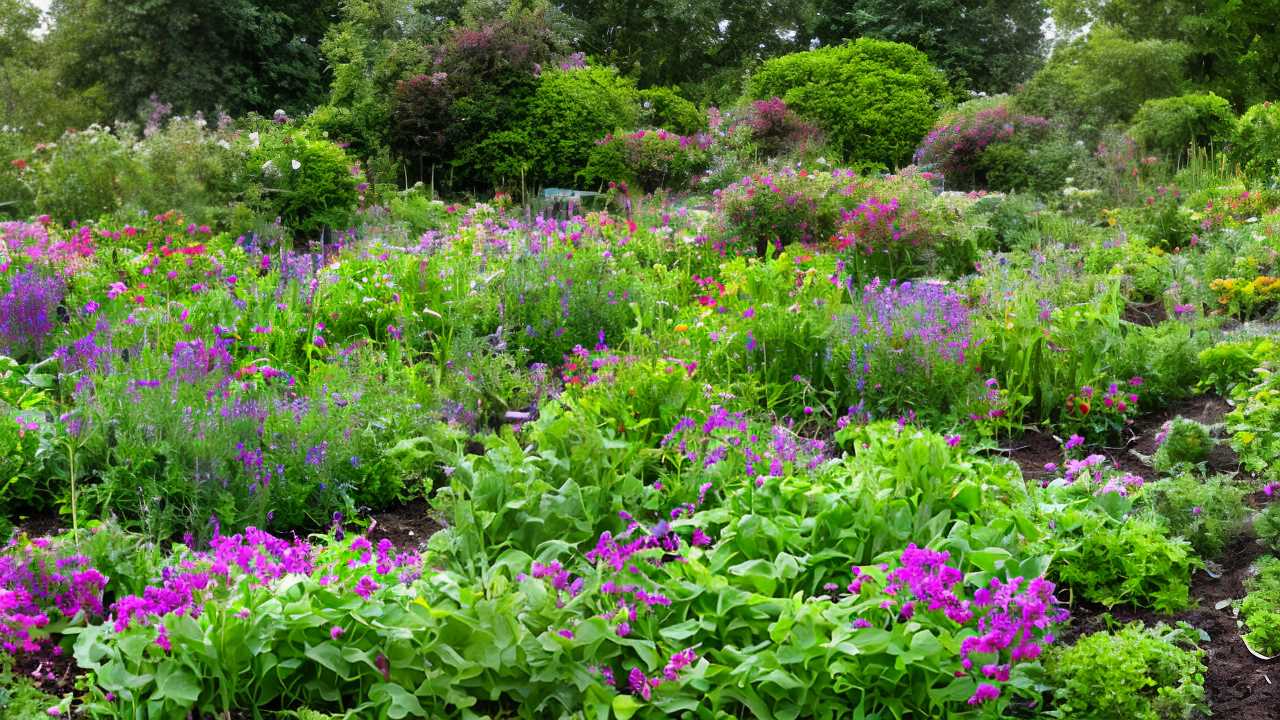
Understanding Organic Gardening
Organic gardening is a sustainable approach to growing plants that focuses on using natural methods and materials to cultivate healthy, vibrant gardens. By avoiding synthetic fertilizers, pesticides, and herbicides, organic gardening promotes a harmonious relationship between plants, soil, and beneficial organisms. This eco-friendly practice not only yields delicious, nutrient-rich fruits and vegetables but also supports biodiversity and minimizes the environmental impact of gardening.
Preparing Your Garden Beds
To start your organic gardening journey, begin by preparing your garden beds. Choose a sunny location with well-draining soil. If you have heavy clay or sandy soil, improve its structure by incorporating organic matter such as compost, aged manure, or leaf mold. These amendments will enhance soil fertility, improve water retention, and promote healthy root growth. Consider building raised beds or using containers if you have limited space or poor soil quality.
Building Healthy Soil
The foundation of a successful organic garden lies in the health of its soil. Nurture your soil by adding organic matter regularly. Compost is a fantastic soil conditioner that provides essential nutrients, improves soil structure, and supports beneficial microorganisms. You can create your own compost by recycling kitchen scraps, yard waste, and fallen leaves. Other organic soil amendments include bone meal, blood meal, and fish emulsion, which provide specific nutrients to your plants.
Selecting the Right Plants
When choosing plants for your organic garden, consider varieties that are well-suited to your climate and resistant to common pests and diseases. Opt for heirloom or open-pollinated varieties that have been grown without genetic modification. These plants often have better flavor and are adapted to local growing conditions. Companion planting is another effective strategy, where certain plants are grown together to deter pests, attract beneficial insects, or improve nutrient uptake.
Watering and Mulching
Proper watering is crucial for the health and productivity of your organic garden. Water your plants deeply and less frequently to encourage deep root growth. Use drip irrigation or soaker hoses to minimize water waste and deliver moisture directly to the plant roots. Mulching is another essential technique that conserves soil moisture, suppresses weeds, and regulates soil temperature. Use organic mulches such as straw, shredded leaves, or grass clippings to cover the soil surface around your plants.
Managing Pests and Diseases
In an organic garden, the focus is on preventing pest and disease problems rather than relying on chemical treatments. Encourage beneficial insects like ladybugs, lacewings, and praying mantises, which prey on common garden pests. Use physical barriers such as row covers or netting to protect plants from insect damage. If an infestation does occur, consider using natural remedies like neem oil, insecticidal soaps, or homemade sprays made from garlic or chili peppers.
Harvesting and Enjoying Your Organic Produce
One of the greatest joys of organic gardening is harvesting fresh, flavorful produce straight from your own backyard. Harvest your crops at peak ripeness to enjoy the best flavor and nutritional value. Regular harvesting also encourages plants to continue producing. After harvesting, make sure to remove any damaged or diseased plant material from your garden to prevent the spread of problems.
Continuous Learning and Experimentation
Organic gardening is an ongoing learning process. Embrace the opportunity to experiment, observe, and adapt your techniques based on the unique needs of your garden. Keep a garden journal to track your successes, challenges, and insights. Attend local workshops, join gardening communities, and seek advice from experienced organic gardeners to expand your knowledge and skills.
By embracing organic gardening techniques, you can create a thriving, sustainable garden that nourishes both your body and the environment. With dedication, patience, and a willingness to learn, you'll soon discover the immense satisfaction that comes from growing your own organic produce. Start small, celebrate your successes, and enjoy the journey of becoming an organic gardening enthusiast.


